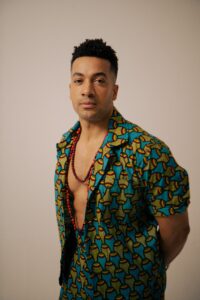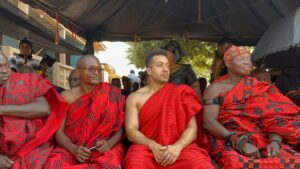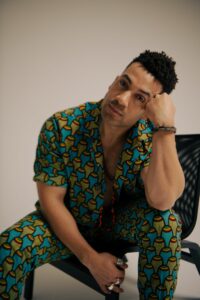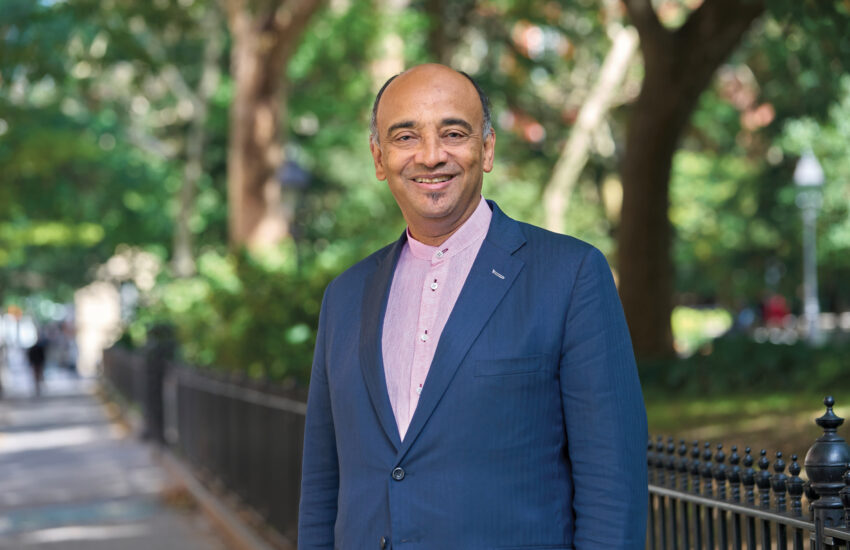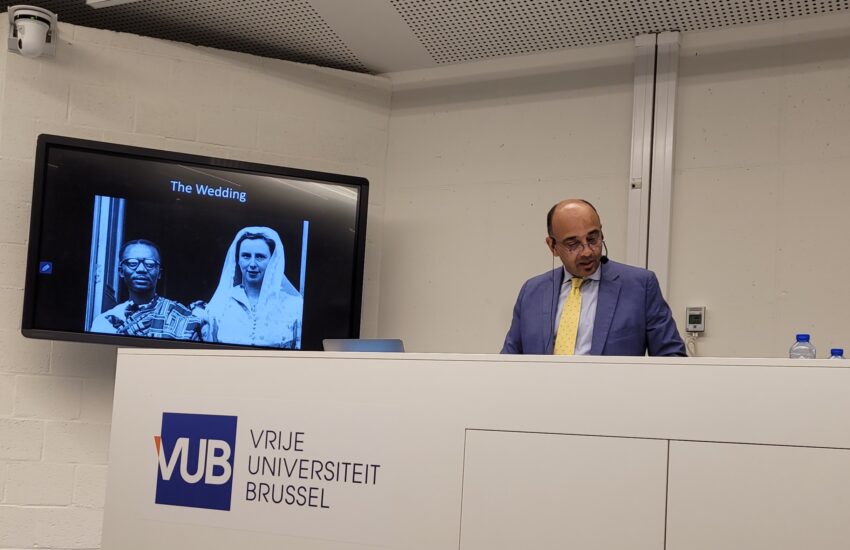Untruths, Loose Ends, Hidden Roots and Extended Family Trees: An Interview with Joe Oteng
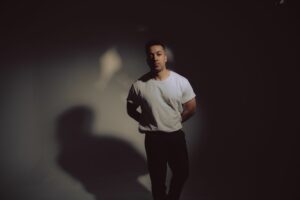
It’s an existential question, possibly as old as humanity itself. How well can you ever really know somebody? For Joe Jaquest Oteng, it’s been more than mere philosophical musing following the death of his father, Peter, 12 years ago.
It is fairly commonplace for some skeletons to spill from the closet of the deceased. It’s just that Peter Oteng had a wall-to-wall unit worth of them.
I first came across Joe’s story in a weekly series of strange-but-true interest pieces in a renowned British broadsheet. It was one of the most intriguing accounts I’d read in a while.
Back in 2011, whilst sorting through his late father’s personal effects, Joe discovers his dad’s real birthdate is completely different. In addition, he was over 10 years older than believed at the time of death. Joe also finds out Peter was one of 13 siblings, all of whom were hitherto unknown to his son. And then there’s a woman called Irene – obviously not Joe’s mother – to whom Oteng senior was still technically married. Stunned, Joe isn’t sure what to do with this unexpected information.
Fast forward almost a decade. The younger Oteng, now an established backing vocalist, is grounded by pandemic containment measures half way through a European tour. Stranded in the UK, unable to reach his home- then in Berlin – it’s the ideal time to look into his dad’s past. Thus begins months and years of searching through archives, tracking down Peter’s erstwhile university friends, former work colleagues and eventually taking a pilgrimage to Ghana.
One bright early autumn afternoon, Joe joins me for a virtual chat from Spain, where he’s now based. More details emerge that have yet to make the many print interviews he’s done or the recent YouTube series, Hidden Roots documenting his search for answers. Time and discretion only allows coverage of so much. What remains is still full of enough twists, turns and cliff-hangers to make a soap opera scriptwriter salivate. Buckle-up, readers.
The young Peter Oteng relocated from Ghana in the 1960s to attend university on a scholarship in Wales. By the time he met Joe’s English mother, Su, in the late 1980s, he was working for the Commission for Racial Equality (CRE) and living in Birmingham.
A housing officer at the time, Su was attending the same conference as Peter in Nottingham. You could say it was a case of primal magnetism.
‘They met and conceived me that night’ Joe shares, without coyness ‘My mum raised me as a single parent for the first year in Portsmouth. My dad stayed in Birmingham. Then they decided they would try and make it work together, so they moved to Wolverhampton’
Peter and Su would never formalise the union. By the time their son was about to start secondary school, the relationship was over.
‘They tried for too long’ admits a rueful Joe ‘I rate them so much for wanting to make it work for the sake of keeping a unit together but it was a terrible decision. They couldn’t communicate. I turned out fine but it wasn’t a stable household environment.’
Eventually, Joe would divide time between his father during the school week and his mother on weekends and holidays.
How important did he perceive Peter’s cultural input during his formative years?
‘I wasn’t getting what I wanted or needed. It’s a parent’s job to decide that; kids don’t know. My dad definitely shied away from shining a light on the culture and his family’
It wasn’t a complete cultural desert, however.
‘There were little things dad did that stick. He used to tell me about Anansi the spiderman. I loved those stories and all the little characters. I think it was because it was different; not standard British “Jack and Jill went up the hill” stuff. Beyond that, it was like “You’re Ghanaian. Here are some Anansi stories and that’s it. See you later”’.
Joe has fond memories of spending time with his neighbours, a proudly Jamaican family. Yet the overall social landscape was far more inhospitable, he claims.
‘Wolverhampton in the 90s, as diverse as it was, could be horrifically racist. My awareness of my skin colour was at its peak during that period. There was a lot of hostility from kids and adults as well. It was an interesting time.’
Joe speaks repeatedly about not being surprised by Peter’s revelations because he was secretive to the extreme, even at the point of death. Faced with his dad’s perpetual reticence, Oteng gave up on probing further.
‘I had a general feeling that I didn’t get the straightforward answers that I wanted from my dad on a lot of different subjects. Certainly by the time I was at secondary school, we didn’t talk about anything deep at all. I wouldn’t have tried to. That did start to shift the other way as I got into my late teens. Our relationship improved. I would start to ask deeper questions like “Do you think you’ll ever have another relationship?” I’d never have dreamed of asking that when I was 11 or 12. That conversation sticks in my mind because he gave me a moment of honesty’
We return to the theme of Joe’s life-changing discovery in 2011. There was a lag of nearly 10 years before he began his quest. Why so long?
‘Dad died when I was 23. I had just moved down to London. I’d decided to try and make it in the music world so it was all new for me. I wanted to find out more about my dad’s past but I had a million other competing priorities’.
To complicate matters, Joe was the sole executor of his father’s estate, having been (and still somewhat) estranged from an older half-brother, Chris. If that weren’t enough, Peter died intestate; yet another legal and administrative headache.
When COVID-19 hit, Joe saw his window to resume the search.
‘I thought “If I don’t do this now, when my work has been taken out of my hands, I never will”.’
Peter’s former acquaintances speak of an outgoing, once patriotic Ghanaian who wore traditional attire and was an advocate of pan-Africanism. Theorising is always risky business but can Joe account for the disconnect between this portrait of his dad and the Eastenders’-watching, gardening enthusiast he describes growing up?
‘It is risky because ultimately, I don’t know. It could be any number of things. I can’t help but feel that something happened between him and his family in Ghana. Either he was trying to protect them from a truth he didn’t want them to know or they did something which made him feel abandoned’
Migration itself can be traumatic. It’s nothing new to speak of the culture shock, isolation and prejudice experienced by those migrating to the West from former colonies. Could this have been a factor in Peter turning inward?
‘
“Potentially, yes, totally’ agrees Joe ‘Speaking to Ian, a friend Dad went to University with, he told me that it was in an entirely white area; to the point that one of the local papers wrote an article about Dad’s arrival. It was insane…That sort of stuff can grind you down’
Joe reflects some more, ‘Having to constantly deal with [comments such as] “Oh, these are nice robes!” that kind of stuff…Eventually you think, “Just assimilate. Just code switch. Keep it simple because life is already hard”. I’m sure he was dealing with enough of his own issues. If I could sum Dad up in one sentiment it was ‘an easy life’. He didn’t want complication. He didn’t want emotion and problems. He just wanted to do the things he loved which was his work, raise me to get a good education, watch EastEnders and tend to his garden’.
Joe is a congenial and voluble raconteur, maintaining a positive outlook despite several upsetting aspects of the saga. You could say he’s rather magnanimous given the circumstances. Nonetheless, Oteng has mentioned moments of anger; a perfectly healthy and understandable response. More recently, he seems to have made his peace with it all. Therapy has also been helpful, according to Joe. Does he still catch himself feeling frustrated with his late father?
‘Time is the greatest healer, right?’ Joe proffers ‘Not always, but generally feelings are going to be more muted as time goes by. Also, since I started doing the documentary, understanding dad’s mindset, I’ve come to a much more nuanced perspective on who he was and his possible motivations. At the beginning I blamed him. I thought he was selfish and inconsiderate…He wasted so many opportunities to be honest. It’s not to say those things aren’t true to some extent but who is out here doing everything exactly as they should? I know in my heart, for all Dad’s faults, he was doing what he thought was best. He didn’t wish to cause me harm.’
Joe recalls a moment towards the end of Peter’s life as further illustration.
‘At the hospice, the doctors had told me privately that Dad only had a couple of weeks left. Obviously, they would have also discussed this with him and he must have realised that. I asked him “So, what happens now, Dad? What are we doing?” I was carefully making my point. Dad looks out of the window for ages, saying nothing. Then he looks back and says “I’m going to be fine. It’s okay…”’
Joe emits a sound of incredulity. ‘He’s literally on his death bed. Not only could he not acknowledge it, it was complete denial. I still think he did that because he thought he was protecting me from an uncomfortable truth. Maybe that worked for him but I’m not like that at all. I’m an emotional person. I need to confront difficult situations. But he couldn’t and that stuck in my head. If there’s no space for honesty in that moment then I’m not going to push. What would be the point?’
As a musician, Joe has found some solace in his art.
‘I have written music that has helped me process those feelings but it hasn’t been related to my dad. It’s not that I’m not ready for it. I just haven’t.’
Joe nevertheless has plans to pay musical homage to Peter through a track that holds particular significance: To Build a Home by The Cinematic Orchestra.
‘It was a really important song to me and I wanted it played at Dad’s funeral. I didn’t have much money so it was a very cheap service. To Build a Home was playing when whoever was officiating said “Right! That’s about enough” and pressed stop half way through it. I didn’t get that chance to sit with the song. So, I’m planning to do a cover using Ghanaian musicians and instrumentation. I have every intention of turning that quite traumatic experience at the funeral into a celebration and dedication to Dad. The plan is for it to accompany the second [YouTube] series next year’
One touching aspect of the first series is Joe’s relationship with his friend, Nana. Does he consider it a sweet irony that a woman of Ghanaian descent was part of his support network during his research? The truth is more prosaic than that.
‘I sought her out’ Joe recounts ‘We got closer through this process. When I wanted to find out more about Ghana, I would tap Nana up because she knows so much more about it. It has been a really nice way for us to bond. When I was out in Accra at the beginning of the year, we saw each other all the time and it was great…’
Joe mentions it casually but that was the fateful first trip to Ghana he had taken. It was a veritable homecoming. To Oteng’s surprise, his extended family were fairly indifferent to the news of his dad’s double life. Was Joe disappointed by this reaction?
‘I had to constantly course-correct my expectations whilst I was in Ghana’ Joe says, with the sagacity of someone on the other side of an important life lesson ‘I already knew that all my dad’s siblings were dead. I wasn’t expecting to get a new perspective on Dad’s situation. Those who did know him were more interested by the fact I was there. It was overwhelming as well. There are so many people; 20 Kwames and 50 Kwesis…’
…Joe’s Akan day name is, incidentally, also Kwame; born on a Saturday….
‘That’s what they all called me. It got so confusing. Any time my relatives tried to shed light on something I was like “Who are we talking about?” At some point, I thought “Let Jesus take the wheel. It is what it is”. I could push them to give me the answers I want to my questions and my specific need but it felt like I was putting my British expectations on to their very Ghanaian reaction to my existence. After a while, I just acquiesced.’
On the last day of the month-long sojourn, Joe met the enigmatic Irene, his dad’s ‘secret’ wife.
‘I’d given up hope on finding her’ he confesses ‘Then my cousin, John, located her phone number. I called. She answered. It was a very surreal conversation in my older cousins’ kitchen. She asked how Dad was and I realised they really hadn’t spoken in a long time. We both had many questions. Although it would be strange, I suggested it might be easier to meet her.’
Irene helped to fill in some important blanks. There were more revelations, too long and rococo for these pages. Joe did find out what became of hers and Peter’s relationship. They had met through the very same cousin, John, who had arranged Joe and Irene’s meeting.
‘They wed in Birmingham in 1974’ Joe shares ‘Irene never had a British passport. She would come to the UK to stay with Dad for a bit and go back. He was at Birmingham University, just about to finish his post-graduate degree. Dad told her he only had a few months left of study. He encouraged her to go back to her teaching job in Ghana and he’d return once he finished his degree….’
And then, eternal radio silence.
‘He just never came back’ Joe continues, baffled ‘He ghosted his wife and just carried on. He never spoke to her again for the rest of his life. Irene waited for him in Ghana for about a year. Eventually she said – and I loved her for it -she wasn’t waiting around for no man. She moved to America. It’s crazy. They never divorced’.
Another highligh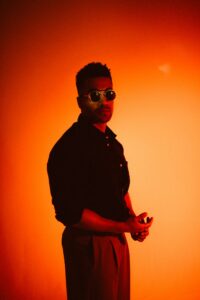 t for Joe was meeting Stella, Irene’s daughter.
t for Joe was meeting Stella, Irene’s daughter.
‘Amongst all the records of information, I found the name of a woman called Stella. It looked as if she could be Irene’s daughter but I wasn’t sure. I had a picture of her. I knew she was a paediatrician and that she worked at a certain hospital. My search came to nothing but when I met Irene, she was with Stella. I immediately recognised her but she was freaked out. It took her a minute to get comfortable but she was [already] a celebrity to me. For months, I felt all roads lead to Stella. She’s the answer. ’
It turns out Stella is not an Oteng, since there was no offspring from Peter and Irene’s union.
Amidst stand-out memories from the Ghana homecoming, Joe cherishes spending a few days in Peter’s home village.
‘That whole trip was hugely important to me in healing my relationship with my dad’ he reveals ‘I saw the very room where he was born. All the elders, chiefs and the people in the village came out to pay respect to him and to welcome me into the community. It was such an intense experience. In a lot of ways that was the end of the chapter. The searching I’d done led me back to where it all began for him. That moment was already really powerful. Then out of nowhere 100 people come out of the courtyard. There were kids drumming and women dancing…’
Joe was also made an honorary sub-chief, dressed-up in the full regalia (below).
‘It took my breath away. They were so welcoming. Having the energy and the focus of all these people on you is deeply intense. It was guttural. I felt really connected to the people and to the land.’
Whilst that might have been the end of one chapter for Joe, he still hasn’t finished deepening those hidden roots. He plans to return to Ghana for Nana’s wedding in the New Year. As for the YouTube documentary, currently on hiatus, viewers can look forward to a second series soon-ish.
Furthermore, Joe has multimedia ambitions for Hidden Roots.
‘I want to expand the channel. It splits into two things which are important to me. On one side, Ghanaian culture and heritage – the African continent generally. On the other, there are people trying to reconnect with those either they lost or never had the chance to meet. I want the channel to be a space where others can share their stories. So many have approached me to open up about similar experiences.’
‘I’d also love to do a podcast, with different guests of mixed-heritage from all over, to talk about their upbringing and how that has shaped them.’
Joe concludes ‘I’ve discovered much through this process and have been able too connect with my culture, at least on an initial level. There’s a lot more to do but it’s a possible foundation to broadens into something bigger and that deals with more issues’
Joe Jaquest Oteng on YouTube and Instagram
This is an edited version of an interview first featured on the I Was Just Thinking Blog…

